
They say all good things must eventually come to an end. Alicia De Clerck and Zhanna Belskaya of Alter Era prove that not only do they almost always do, but there is always something better waiting for us on the other side. AISPI had the pleasure of interviewing Alicia and got the chance to discover how these two powerhouses built a brand that goes beyond an online store. Read on for more from our interview.
Tell us a little bit about the story behind Alter Era and how it all came about.
Alter Era was a label co-founded by me and my then business partner and co-designer Zhanna. We were roommates and we had collaborated on many projects while at school. We were constantly working together, giving each other feedback and brainstorming new ideas together. A few years later, we had finished school and gone our separate ways when our paths crossed again and that is when we decided to start Alter Era.
Can you give us an insight into the name of the brand? We are sure there’s a story there.
Alter Era was founded at a time when both Zhanna and I had commenced a new era in our lives, personally. The name Alter Era also signified an alternate idea in fashion, wherein we brought together the historical elements of a culture with it’s contemporary aspects. This also formed the foundation of the inspiration behind the pieces we design every season.
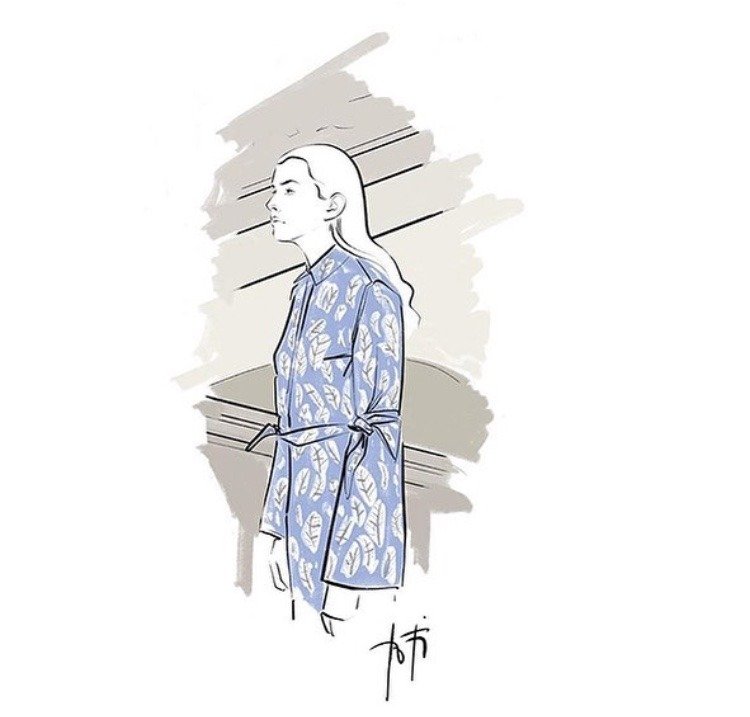
Let’s hear a bit about how your synergy with Zhanna was instrumental while setting up the brand.
The synergies that I share with Zhanna have always been one of our biggest strengths – personally as well as professionally. We understand each other well and know each other’s strengths and weaknesses. We also complement each other in the way we think and do things, within the business and otherwise. For example, where Zhanna is extremely organized and has a very meticulous approach to work, I am more of an improviser – a skill that is especially useful in moments of crisis. Also, while Zhanna was more involved in the technical aspects of the design process, I was more in touch with the creative side of the business.
However, we had never clearly defined our roles within the business. We knew our own strengths and weakness and collaborated in a manner that ultimately contributed to the success of the brand.
Our collaborative way of creating has worked extremely well for us and while it may not be something a lot of designers would opt for, we found that we worked better when we are together, a fact that also contributed to the well-being of Alter Era.
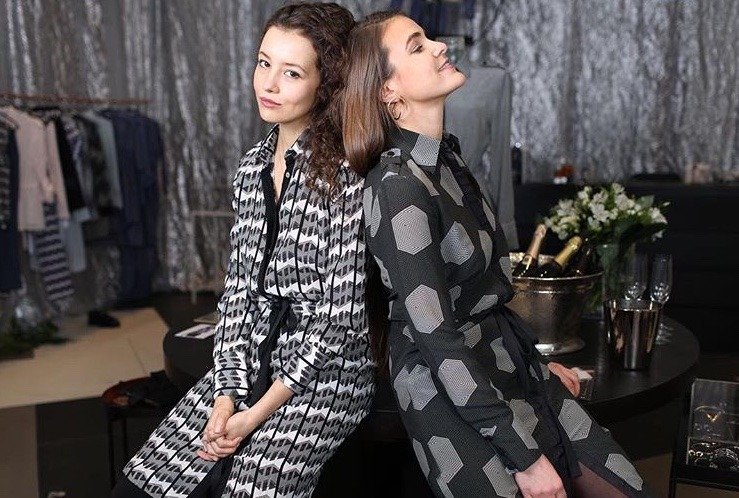
We love the use of prints that Alter Era inculcated within all the collections. Can you tell us something about the inspiration behind these prints and the colour story used in the collections?
Zhanna and I, both, are extremely passionate about creating prints and using them extensively within the design process. We have also been exposed to it on a very intricate level in our individual careers.
We love prints for the visual effect they have on the human body which we always envision as a 3D printed canvas. Prints, when done right, work fantastically in enhancing the body and making it look better.
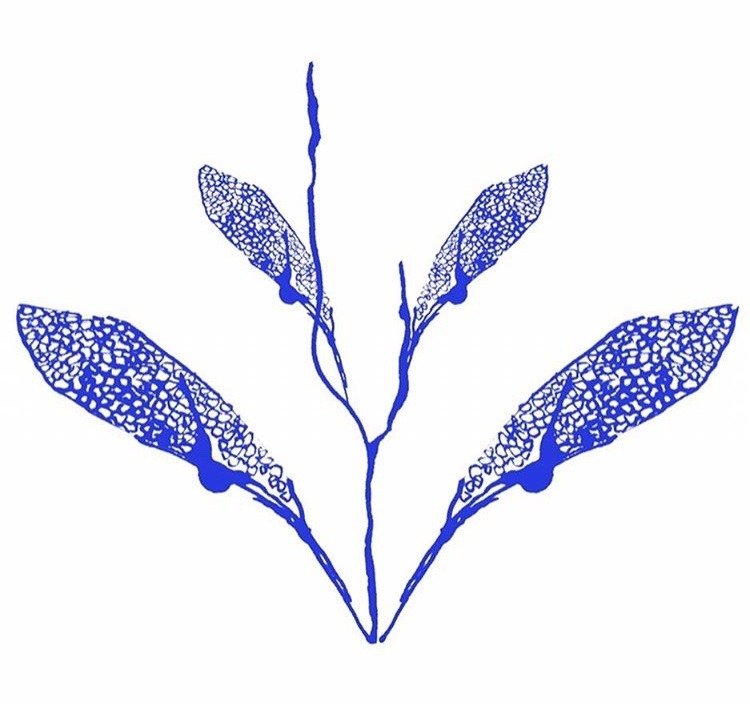

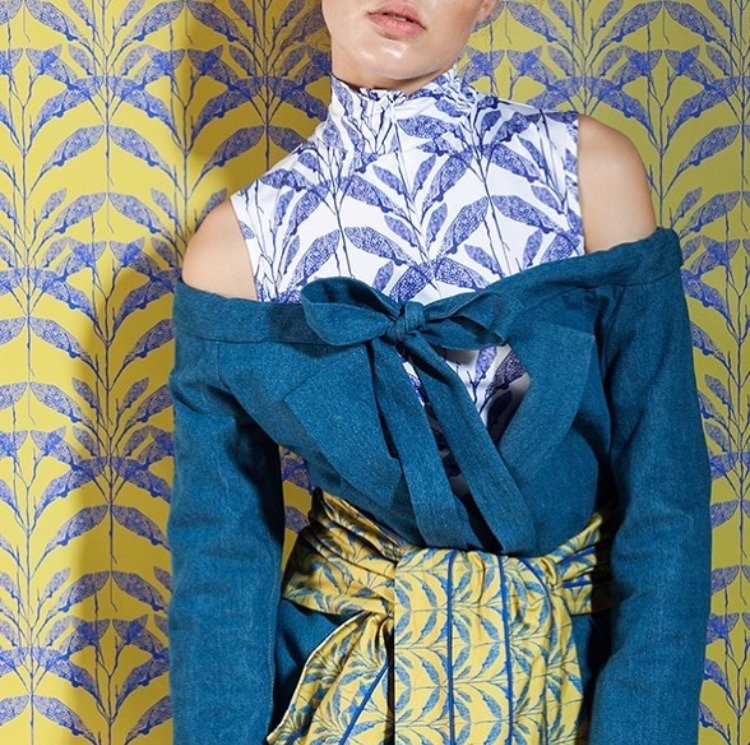
Alter Era’s use of prints defined the brand – it was deeply engrained in our DNA and it is how we connected to our clients.
Our color story always depended largely on the inspiration behind each collection and the mood that we were aiming to portray with it. While it’s true that a large portion of our collections have always featured color stories that are extremely eclectic and bright, we have also done collections featuring colors that are more zen.
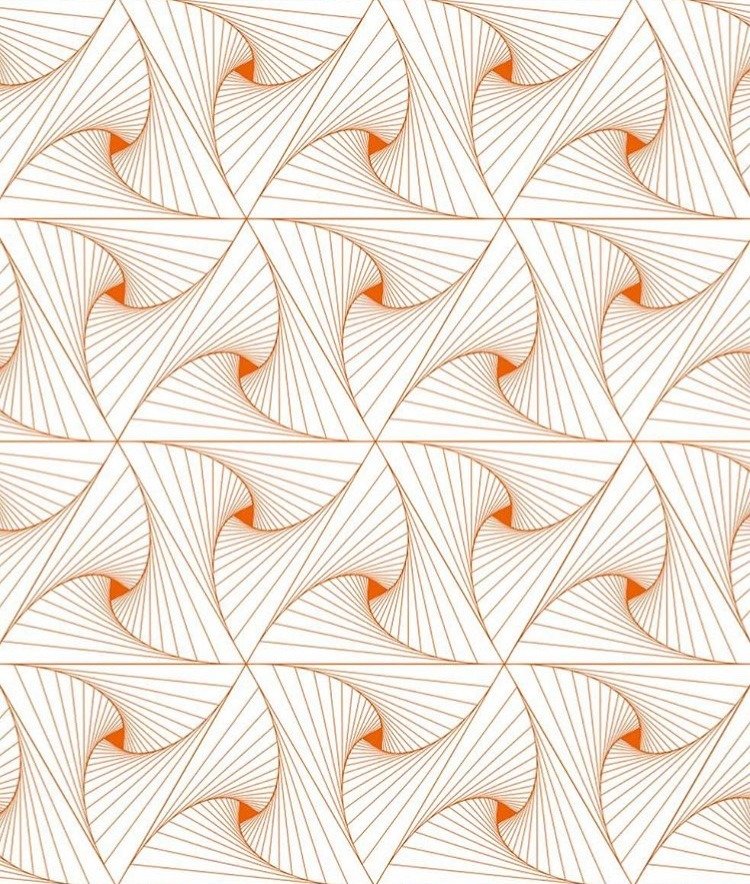
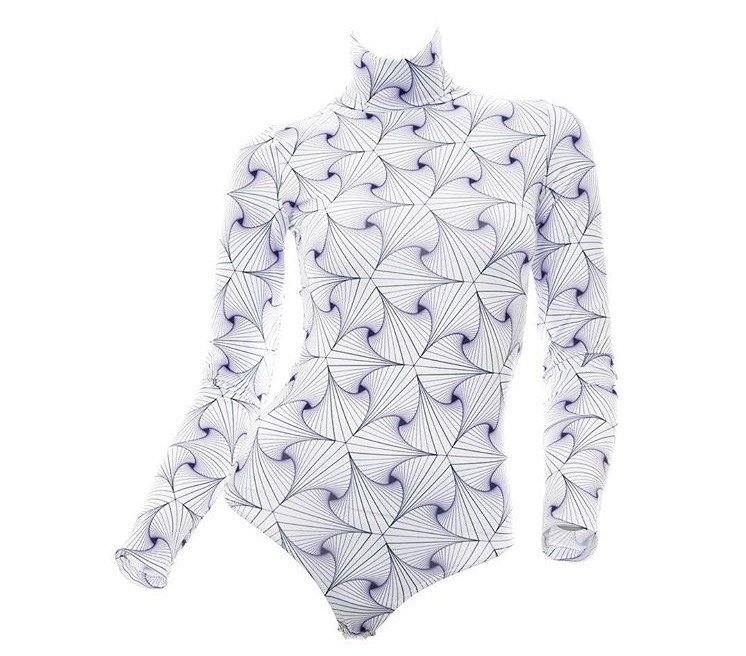
You manufactured your pieces in Czech Republic and Italy. What were the positives and negatives here, and how did it ultimately contribute to the success of the brand?
Our decision to manufacture our product in Czech Republic and Italy had a lot of positives, especially the physical proximity which meant that we could personally overview the entire process. In the beginning, especially, Zhanna and I were very keen on staying on-site and being involved with the entire process and also work on developing things together.
Zhanna and I both speak Italian fluently (and Zhanna having grown up in Prague also speaks Czech), so the language was never a barrier while communicating with our manufacturers. We also had a lot of flexibility in the way we could control the intricate aspects of the manufacturing process, so ultimately, we could work on building a great product together.
The only drawback to manufacturing in Europe was the increase in the production cost. However, we both were determined that our pieces were manufactured in an ethical manner and hence, decided to stick to our manufacturing units in Italy and Czech Republic to produce our pieces.
What were Zhanna’s and your favorite part of running a business together?
Personally, I really enjoyed myself during the initial parts of the design process whether it was with the research or sketching. Although we could not afford to spend too much time on these activities since there was a lot of work to be done and it was just the two of us, we still had a great time. Our other favorite part was presenting the final collection on the runway – watching it all come together truly gave us a high and made all the sleepless nights worth it.
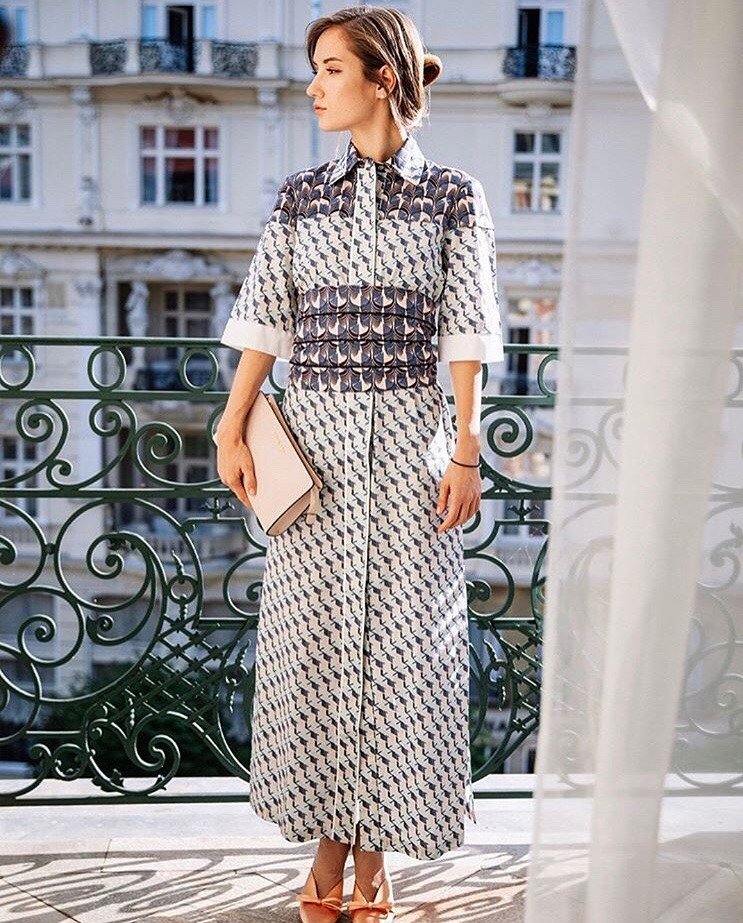
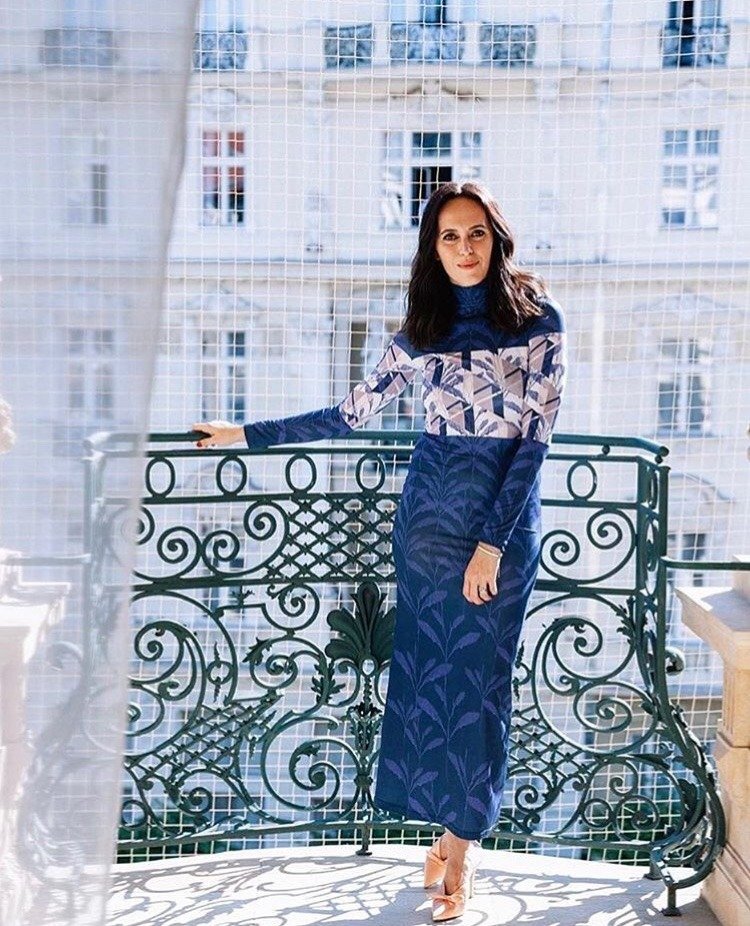
Zhanna and I had a lot of great moments during our entrepreneurial journey and there were also a few times when the going got really tough. Nothing mattered to us, we were just so thrilled at the thought of working on something meaningful together that also had a positive impact on the lives of our clients. From the first inspiration to the final product, we were extremely lucky to have each other – someone to work together with when the going got tough and someone to celebrate with on the good days.
What advice would you give to young brands looking to make a dent in the international fashion industry? What are the key points that one should keep in mind to establish a successful business?
I think it is extremely important for young designers to associate themselves with the right people from the industry who share the same values and skills as them. You also need to focus on being authentic and innovative. Work very hard on your own unique skillset and use it to provide a solution to a problem that your customer is facing.
Young designers today also need to learn to be patient and not try to rush through the process; it is very important to go slowly and learn everything in the right manner and at the right time. Prioritize your work and be extremely selective in the activities you spend your time on.
On the technical aspects of running a fashion business, I would suggest to keep the supply chain as short and simple as possible. It is also extremely important to establish good partnerships with your suppliers as they are a key part of your business and it is necessary for them to know and understand your values.
A secret to good sales would be to establish (and continuously work on sustaining) a great relationship with your peers from the industry.
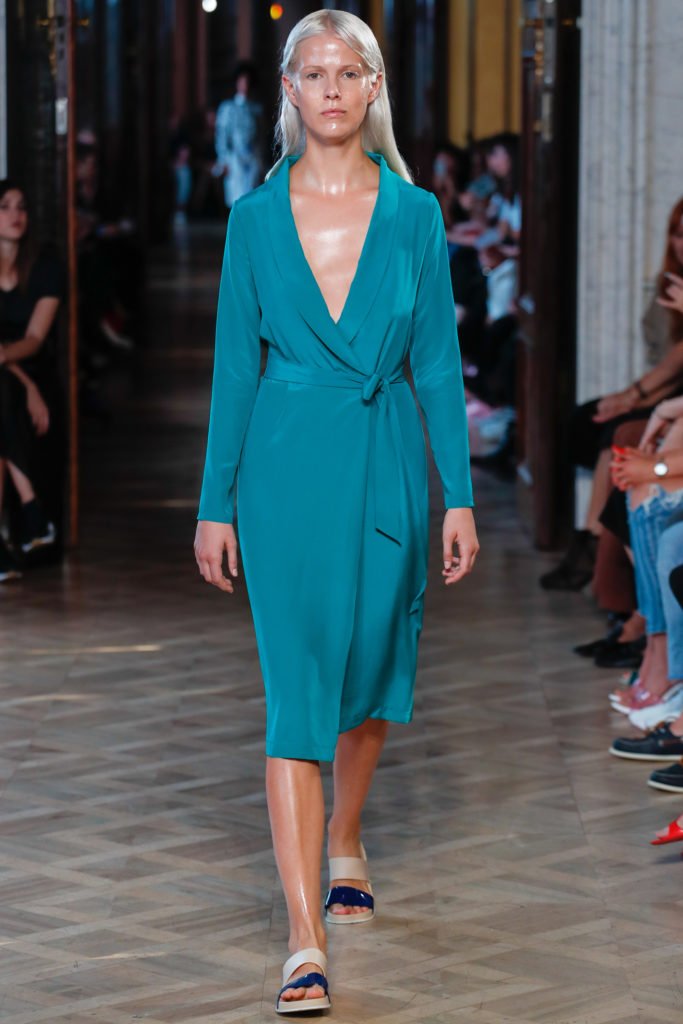
When did you and Zhanna realize that it was time to shut down the business?
Zhanna and I have always strived to put out a product that is of great quality and one which our customers can enjoy and relate to. After a certain point in time, we started having a lot on our plate and were unable to adapt to it as quickly as we should have. In retrospect, we should have tried to find people who would have ensured that the tasks were carried out quicker and in a more efficient manner.
However, we carried on in the exact same format as we had when we first started out which we realized soon enough was not viable on a business of a larger scale. It soon came to a point where we had to choose between the options available to us at the time and we decided to go forward and shut down the business.
How do you think brands today can work on creating a sustainable future within the fashion industry and beyond?
I am very happy to see this question included because in my opinion, sustainability should not be an option or a niche work approach for brands. It should be a core value that every brand inculcates within their DNA. It is important for brands today to be extremely transparent about their design process and how the product is manufactured.
Another problem that the fashion industry today is facing is fast fashion. Brands need to work in tandem with the customers to find an effective solution that combats the negative impact that fast fashion is having on the environment in today’s day and age. It is important for brands to work on developing products that focus on great quality and stop the endless discounting – this is something that, in my opinion, really cuts down on the value of the product and encourages people to buy more.
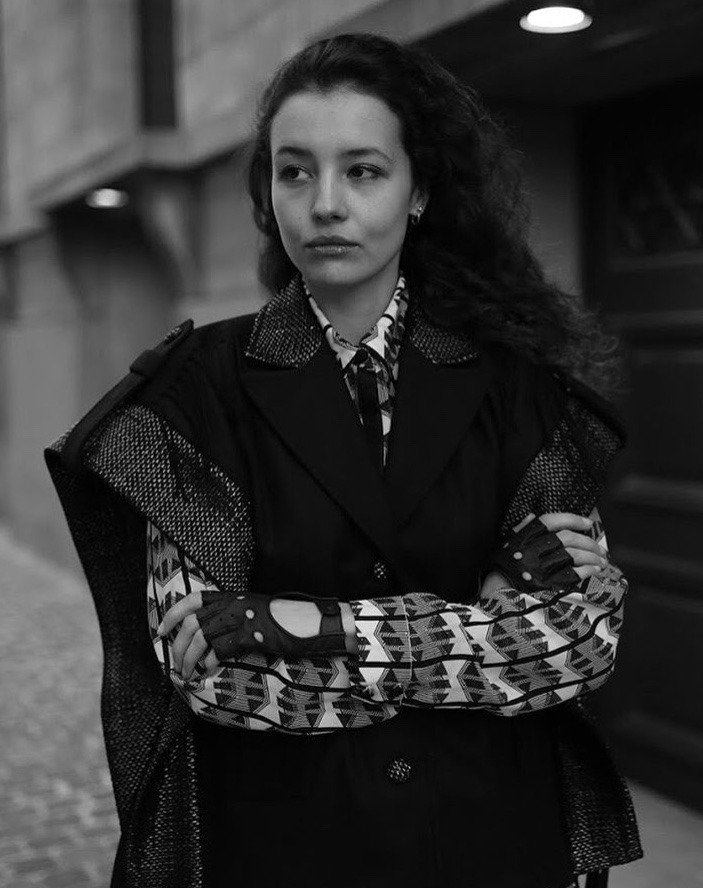
How do you manage the process of shutting shop and closing down a business in a positive manner?
Both Zhanna and I have worked hard at keeping Alter Era alive in one way or the other; for both of us, it is a journey that will never end. We want to keep going with our basic idea behind Alter Era – whether is through our website, our inspiration or our endless archives of what constitutes the brand.
Zhanna and I both worked hard at making the process as positive as possible for everyone involved; we tried to be as honest with our customers as possible and expressed our gratitude towards them for being a part of our journey.
In my opinion, ending something on a positive note is all about the way you choose to communicate with the other person.
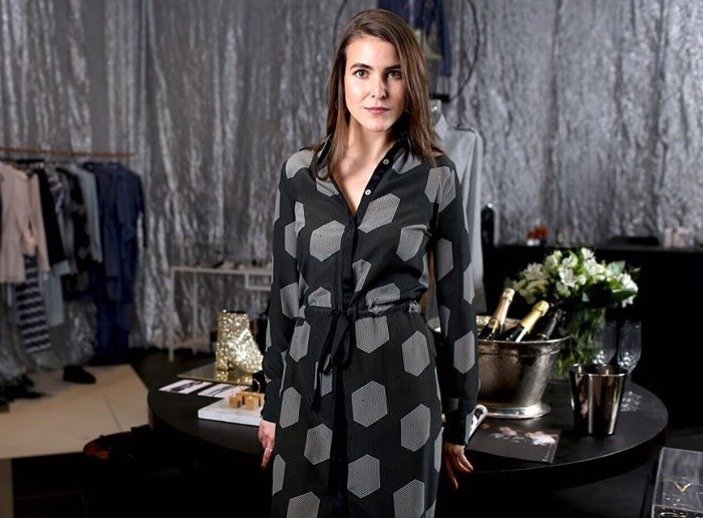
What are you and Zhanna working on at the moment? How do you feel your experience at Alter Era has helped you in your current pursuits?
Zhanna and I both continue to work in the fashion industry. At the moment, I am teaching a masterclass in Paris on haute couture fashion. The masterclass is organized by an international non-profit organization called The Arts of Fashion who organizes annual design contests as well as haute couture masterclasses. For the masterclasses, they invite a designer who conducts and directs the session, which takes place at the Louvre in Paris.
For me, personally, this is a huge honour and privilege coming from a fashion business background as this experience has allowed me to completely focus on the creative process. I am also working on putting together the next masterclass with the organization which will focus exclusively on prints – something that I, of course, have a massive amount of experience in working on with Alter Era. This masterclass will be conducted in winter this year and is super exclusive in the sense that we only take up to fifteen students on board at a time.
Lastly, we would love to know your thoughts on AISPI and how it can, in your opinion, have a positive impact on the lesser-known fashion talent from across Europe.
I believe AISPI has the potential to have an extremely positive impact as a curator of local talent from across Europe. They are providing a platform to discover unique talent – whether in the form of a product or an individual -as well as visibility to upcoming labels that have something more niche to offer. AISPI can work wonders on connecting clients to such brands and creatives.
There are a lot of brands that don’t really have an efficient way or a huge budget to market their products or talent so there is definitely a gap in the market for that which, in my opinion, is something AISPI will be able to fulfill.
– Interviewed and Edited by Soha Joshi
Like what you just read? Stay updated via our blog and Instagram for more of such features of talented creatives like Alicia De Clerck and Zhanna Belskaya.

